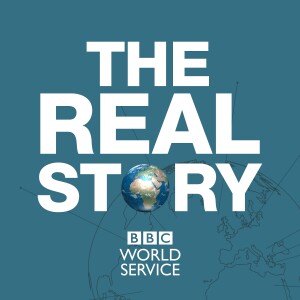
The assassination of the Iranian nuclear scientist Mohsen Fakhrizadeh appears to have made life more difficult for President-elect Biden - yet another event to weigh up as he considers what to do about Donald Trump’s legacy across the Middle East. Over the last four years the Republican president withdrew from the nuclear deal with Iran known as the JCPOA, shifted the US embassy to Jerusalem, withdrew almost all American troops from Syria and refused to support a bill that called for a ban on weapons sales to Saudi Arabia because of its role in the war in Yemen. Mr Trump’s 'maximum pressure' strategy did not prevent Iran from conducting nuclear enrichment and the country remains an influential player in Syria, Iraq and Lebanon. Meanwhile the Abraham Accords between Israel and the UAE, plus Israel and Bahrain have not just normalised diplomatic relations, but also opened new commercial and economic channels between old foes. In an article this year Joe Biden wrote that his administration would stand up to authoritarianism and will place democracy back at the core of US foreign policy. But is that realistic in a region that has adapted to the policies promoted by Donald Trump? To what extent does the thaw in relations between Israel and its Arab neighbours impact America's influence in the region? How much Obama-era policy can or should the Biden administration bring back? Join Ritula Shah and guests as they discuss whether Joe Biden is facing a new Middle East.
view more
More Episodes
Sweden’s hardening stance on immigration
 2022-04-22
2022-04-22
 2022-04-22
2022-04-22
The appeal of the French far-right
 2022-04-15
2022-04-15
 2022-04-15
2022-04-15
Are workers back in the driving seat?
 2022-04-08
2022-04-08
 2022-04-08
2022-04-08
Israel's Arab allies
 2022-04-01
2022-04-01
 2022-04-01
2022-04-01
Who are Russia’s friends?
 2022-03-25
2022-03-25
 2022-03-25
2022-03-25
War in Ukraine transforms Germany
 2022-03-18
2022-03-18
 2022-03-18
2022-03-18
Can Russia’s economy survive?
 2022-03-11
2022-03-11
 2022-03-11
2022-03-11
Europe's energy future beyond Russia
 2022-03-04
2022-03-04
 2022-03-04
2022-03-04
The global debt crisis
 2022-02-25
2022-02-25
 2022-02-25
2022-02-25
Why is China supporting Russia on Nato?
 2022-02-18
2022-02-18
 2022-02-18
2022-02-18
France's place in the world
 2022-02-11
2022-02-11
 2022-02-11
2022-02-11
China’s zero-Covid conundrum
 2022-02-04
2022-02-04
 2022-02-04
2022-02-04
Why Putin has his sights on Ukraine
 2022-01-28
2022-01-28
 2022-01-28
2022-01-28
The future of the BBC
 2022-01-21
2022-01-21
 2022-01-21
2022-01-21
Climate change: A risk to food security?
 2022-01-14
2022-01-14
 2022-01-14
2022-01-14
Do digital currencies need policing?
 2021-12-17
2021-12-17
 2021-12-17
2021-12-17
What's going wrong in the Balkans?
 2021-12-10
2021-12-10
 2021-12-10
2021-12-10
Omicron: Did Africa get a raw deal?
 2021-12-03
2021-12-03
 2021-12-03
2021-12-03
012345678910111213141516171819
Create your
podcast in
minutes
- Full-featured podcast site
- Unlimited storage and bandwidth
- Comprehensive podcast stats
- Distribute to Apple Podcasts, Spotify, and more
- Make money with your podcast
It is Free
- Privacy Policy
- Cookie Policy
- Terms of Use
- Consent Preferences
- Copyright © 2015-2024 Podbean.com



